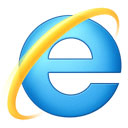Microsoft warns of 'limited, targeted attacks' against Windows vulnerability


The vulnerability under attack -- now fixed today with the MS12-027 bulletin -- exists in Windows Common Controls and can be exploited to launch remote code execution attacks if a user simply surfs to a malicious website.
The vulnerability is caused when the MSCOMCTL.OCX ActiveX control, while being used in Internet Explorer, corrupts the system state in such a way as to allow an attacker to execute arbitrary code.
Microsoft is calling on Windows users to apply this bulletin as a priority because of the high-risk of code execution attacks.
The company is also calling special attention to MS12-023, which addresses at least 5 flaws in the Internet Explorer browser.
The most severe vulnerabilities could allow remote code execution if a user views a specially crafted webpage using Internet Explorer. An attacker who successfully exploited any of these vulnerabilities could gain the same user rights as the current user. Users whose accounts are configured to have fewer user rights on the system could be less impacted than users who operate with administrative user rights.
Windows users are also urged to apply a third "critical" bulletin (MS12-024), which covers a "critical" vulnerability that allows remote code execution if a user or application runs or installs a specially crafted, signed portable executable (PE) file on an affected system.
This month's Patch Tuesday batch also includes:
- MS12-025 (Critical) -- A privately reported vulnerability in Microsoft .NET Framework. The vulnerability could allow remote code execution on a client system if a user views a specially crafted webpage using a web browser that can run XAML Browser Applications (XBAPs). Users whose accounts are configured to have fewer user rights on the system could be less impacted than users who operate with administrative user rights. The vulnerability could also allow remote code execution on a server system running IIS, if that server allows processing ASP.NET pages and an attacker succeeds in uploading a specially crafted ASP.NET page to that server and then executes the page, as could be the case in a web hosting scenario. This vulnerability could also be used by Windows .NET applications to bypass Code Access Security (CAS) restrictions.
- MS12-026 (Important) -- Two privately reported vulnerabilities in Microsoft Forefront Unified Access Gateway (UAG). The more severe of the vulnerabilities could allow information disclosure if an attacker sends a specially crafted query to the UAG server.
- MS12-028 (Important) -- This security update resolves a privately reported vulnerability in Microsoft Office and Microsoft Works. The vulnerability could allow remote code execution if a user opens a specially crafted Works file. An attacker who successfully exploited this vulnerability could gain the same user rights as the current user. Users whose accounts are configured to have fewer user rights on the system could be less impacted than users who operate with administrative user rights.